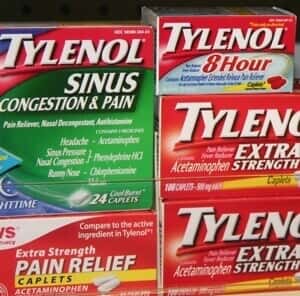
For years we were told to “Trust TYLENOL. Hospitals do.” The manufacturer of this popular brand of acetaminophen promoted its safety, particularly compared to aspirin.
A new investigative report from ProPublica and the radio show, This American Life, reveals that this supposedly safe drug has led to at least 1500 deaths over the last decade. Part of the reason for the toll is repeated delays by the FDA on warning the public about liver damage, alcohol interactions and the dangers of high doses.
Doses of acetaminophen not much higher than the recommended maximum dose can cause serious liver problems. The FDA was advised of this in 1977 but waited more than three decades to require such a warning. In its bureaucratic foot-dragging, the FDA seems to have lost sight of the real people who suffer.
A reader wrote us:
“A good friend was one of the first deaths attributed to the use of Tylenol. His was one of the cases that led to required labeling on Tylenol boxes. He was a young, robust and healthy man. He was feeling flu-ish and his doctor told him to take Tylenol. Unfortunately he took the Tylenol with beer every evening. He died in just a few weeks from liver failure. One week he was healthy as a horse; a few weeks later he was dead. DEFINITELY DO NOT DRINK ALCOHOL with Tylenol!”
Even health professionals may not treat acetaminophen with the respect it deserves. A nurse wrote:
“When I started, I was shocked to see that most doctors have routine standing orders for each new patient admission into a hospital or nursing facility, and most of those include acetaminophen, even for patients with liver failure!
“Patients need to look out for themselves. If you have a compromised liver, then you need to be vigilant to avoid all acetaminophen products, and recognize the overdose symptoms–itchy skin, pain in the upper left abdomen (especially when sitting forward), nausea, yellowish tint to the skin and eyes (jaundice) and brain fog. Often, though, routine liver enzyme lab results that are elevated are the only sign of liver damage.”
Another reader related:
“Five years ago I had surgery and when I came out of the anesthesia, although groggy, I added up the amount of acetaminophen in the pain pills the surgeon had ordered. The dosage each 24 hours contained 12,000 mg of acetaminophen. The hospital pharmacist had not noticed the amount. I took only about 3,000 mg a day and just suffered through the pain for about ten days.”
A person with arthritis defended acetaminophen: “I’m sorry to hear about those who died. However, I have taken Tylenol in the extra-strength formulation for years as needed for arthritis. I have sometimes taken the maximum dose (4,000 mg) for several days when I had a sprain or after gallbladder surgery.
“I do not drink, and I examine all other medications to ensure that they do not contain acetaminophen. I have my liver enzymes checked by my doctor on a regular basis. My point is that Tylenol can be a safe and effective pain-killer, as well as a non-addictive one.”
If more patients were as careful as this person, perhaps there would be fewer deaths from this OTC pain reliever. The FDA has a responsibility to make the hazards of acetaminophen more evident.
If you have experienced a problem with acetaminophen, share your story below.

